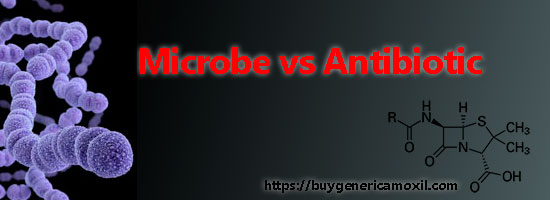Microbe vs antibiotic: In the global battle against antibiotic resistance, where on the one hand – pharmaceutical giants and governments, ordinary doctors and patients, and on the other – escherichia coli, mycobacteria and vibrio cholerae, no one has emerged victorious, and it is still unknown which side has the upper hand.

Just 60-plus years after the Nobel Prize in Medicine that penicillin discoverer Alexander Fleming shared with colleagues Howard Florey and Ernst Chen, the head of the World Health Organization, Margaret Chan, said that the world may be “on the threshold of a post-antibiotic era.”
The reason that just half a century after the beginning of the industrial production of penicillin, humanity was threatened, in the words of Chan, “the end of modern medicine as we know it”, is very simple: microorganisms, like people, also really, really want to live.
Therefore, in the global battle against antibiotic resistance, where on the one hand — pharmaceutical giants and governments, ordinary doctors and patients, and on the other — escherichia coli, mycobacteria and vibrio cholerae, so far no one has emerged victorious, and it is still unknown on which side the advantage is-this is an eternal inevitable race.
Antibiotic resistance in bacteria
Unfortunately, antibiotic resistance in bacteria is an unavoidable phenomenon, it occurs precisely because, like any living organism, a bacterium perceives an antibiotic as something alien, and its task is to survive. Bacteria and fungi mutate much more often than human cells, so they quickly learn to protect themselves from dangerous drugs. In addition, some species of bacteria are able to “exchange experience” with relatives, that is, literally change the genetic material and thus acquire useful from an evolutionary point of view resistance.
It turns out that the person and the causative agent of the disease compete — who will react faster to the next “achievement” of the other. Fortunately for us, not all harmful microorganisms succeed in this race — so even after 85 years and the availability of dozens of drugs, Fleming’s discovery is still relevant.
There are some bacteria, for example, the causative agents of inflammation of the throat — tonsillitis, pharyngitis, which never develop resistance to penicillin. There is a syphilis pathogen that is still sensitive to the same penicillin. Why is a very difficult question, which, frankly, scientists can not answer.
There are also more exotic options — for example, the Nobel Prize winner in Chemistry Sidney Altman believes that the antibiotics of the future will directly “turn off” the genetic processes in the cells of pathogens, and the question of resistance to microbe vs antibiotic simply will not arise.